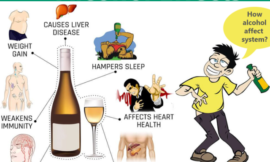Hepatitis C virus (HCV) is a stubborn but common virus that attacks the liver and millions of people suffering from it.
It can be difficult for the human immune system to fight HCV. Fortunately, there are several drugs available to treat hepatitis C and these medicine are easily available on pharmacies and especially online pharmacy. You may get these following drugs in best reasonable price from GDMeds, Anukar, 984.degree pharmacies and they provide free shipment on some of HCV medicines.
Read on to learn more about hepatitis C treatments and their side effects.
Treatment options
The main types of HCV medications prescribed today are direct-acting antivirals (DAAs) and ribavirin. In rare cases where DAAs are not accessible, interferons may be prescribed.
Direct-acting antivirals (DAAs)
Today, DAAs are the standard of care for those with chronic hepatitis C. Unlike previous treatments, which could only help people manage their condition, DAAs can cure HCV infection at a much higher rate.
These drugs may be available as individual drugs or as part of a combination therapy. All of these medications are taken orally.
Daclatasvir (Daklinza)
You’ll take this pill once a day along with sofosbuvir for 12 weeks, around the same time every day.
It might cause:
- Chest pain
- Confusion
- Diarrhea
- Dizziness
- Fainting
- Headache
- Memory problems
- Shortness of breath
- Weakness
Sofosbuvir-velpatasvir (Epclusa)
This daily pill, which you take for 12 weeks, should cure your disease.
It could also cause:
- Fatigue
- Headache
If your doctor prescribes ribavirin along with it, you may also have diarrhea, an upset stomach, and trouble sleeping.
Ledipasvir-sofosbuvir (Harvoni)
You take this tablet once a day for 8 to 24 weeks. It should cure your hepatitis C.
The most common side effects include:
- Fatigue
- Headache
- Nausea
When you use it with an older drug called ribavirin, it can also cause weakness or a cough.
Glecaprevir and pibrentasvir (Mavyret)
You’ll take three tablets a day for 8 weeks if you don’t have cirrhosis (liver scarring) and haven’t been treated before. You’ll get treatment longer if your disease is more advanced.
Side effects usually include:
- Headache
- Fatigue
- Nausea
- Diarrhea
Don’t take it if you’ve had hepatitis B in the past. It can cause severe liver damage.
Peginterferon (Pegasys)
You take this medicine as a shot under your skin once a week. Try to take it the same day at the same time. You might take it alone or in combination with other medications. You’ll take it for 12 to 24 weeks.
Side effects can include:
- Flu-like symptoms (headache, fatigue, fever, chills, muscle aches)
- Arthritis-like pain in back, joints
- Gastrointestinal problems (nausea, abdominal pain, diarrhea)
- Insomnia
- Depression
- Low blood cell counts
Talk to your doctor if you’ve had an organ transplant, or if you’re pregnant, breastfeeding, or plan to get pregnant while taking it. It can cause miscarriages. Also tell your dentist or other doctor you’re on it before you have surgery or any other type of procedure.
Ribavirin (Copegus, Moderiba, Ribasphere, Virazole)
This comes as a tablet, capsule, or liquid. You take it with food twice a day, in the morning and evening, for 24 to 48 weeks or longer.
You can expect to have:
- Flu-like side effects (fever, headache, chills, muscle aches)
- Gastrointestinal problems (low appetite, nausea, vomiting, diarrhea)
- Low blood cell counts
- Depression
- Insomnia
- Hair loss
Sofosbuvir (Sovaldi) with interferon and ribavirin
Take this tablet at the same time every day with food. You have to take it along with ribavirin and/or interferon, and you’ll probably be on it for 12 to 24 weeks.
It will probably cause:
- Flu-like symptoms (fatigue, headache)
- Nausea
- Insomnia
- Low red blood cell count
- Itching
Don’t take St. John’s wort while you’re on this medication. Also, you’ll need to use two methods of birth control to prevent pregnancy in you or your partner while taking ribavirin and for 6 months after you stop.
Ombitasvir-paritaprevir-ritonavir (Technivie):
You’ll take this tablet by mouth, possibly along with ribavirin. Take it every morning, with food
You might notice:
- Trouble falling asleep
- Rash
- Reddened, itchy skin
- Swollen throat, face, tongue, lips, hands, feet, ankles, or lower legs
- Weakness
- Confusion
This medication makes birth control less effective.
Ombitasvir, paritaprevir, dasabuvir, and ritonavir (Viekira Pak)
This treatment is a combo of pills: two that you’ll take once a day, and one you’ll take twice with meals. You’ll take it for 12 to 24 weeks.
During treatment, you may notice:
- Fatigue
- Nausea
- Itching
- Skin reactions
- Insomnia
- Weakness
- Severe liver injury if given to someone who already has severe liver disease
If you use it with ribavirin, watch out for skin redness or rash. Feeling weak is also a common side effect.
Sofosbuvir-velpatasvir-voxilaprevir (Vosevi)
You’ll take it once a day for 12 weeks. It’s OK for people who have cirrhosis and have already had some treatment.
It could cause side effects like:
- Headache
- Fatigue
Side effects may last 2 to 12 weeks or even up to 6 months after you stop treatment.
Elbasvir-grazoprevir (Zepatier)
This once-a-day tablet could cure hepatitis in 12 to 16 weeks.
You can expect to have:
- Fatigue
- Headache
- Skin reactions
- Low red blood cell count
- Gastrointestinal problems (nausea, diarrhea, abdominal pain)
If you’re also taking ribavirin (Rebetol, Virazole), you could have joint pain, anemia, or feel depressed.





